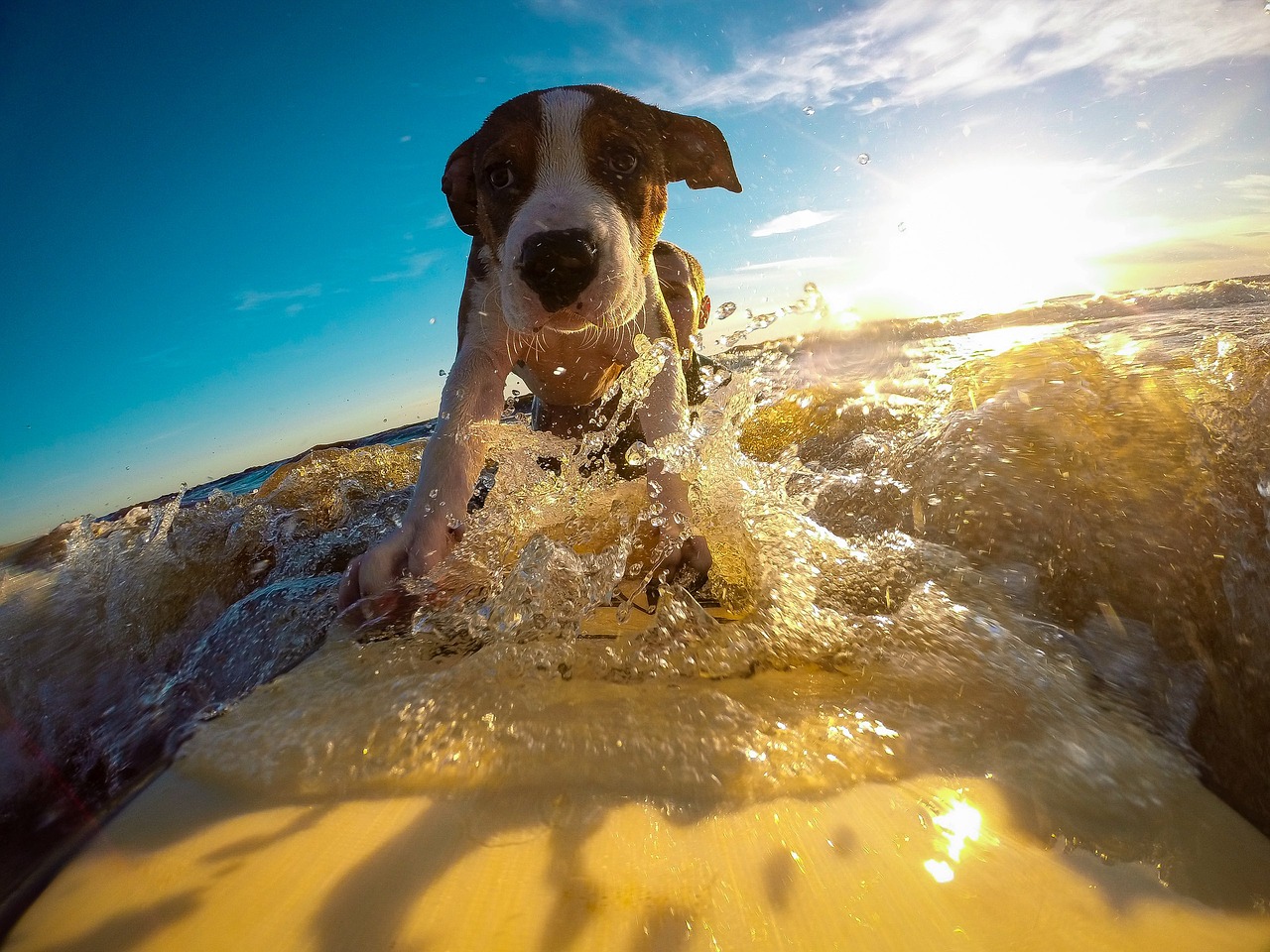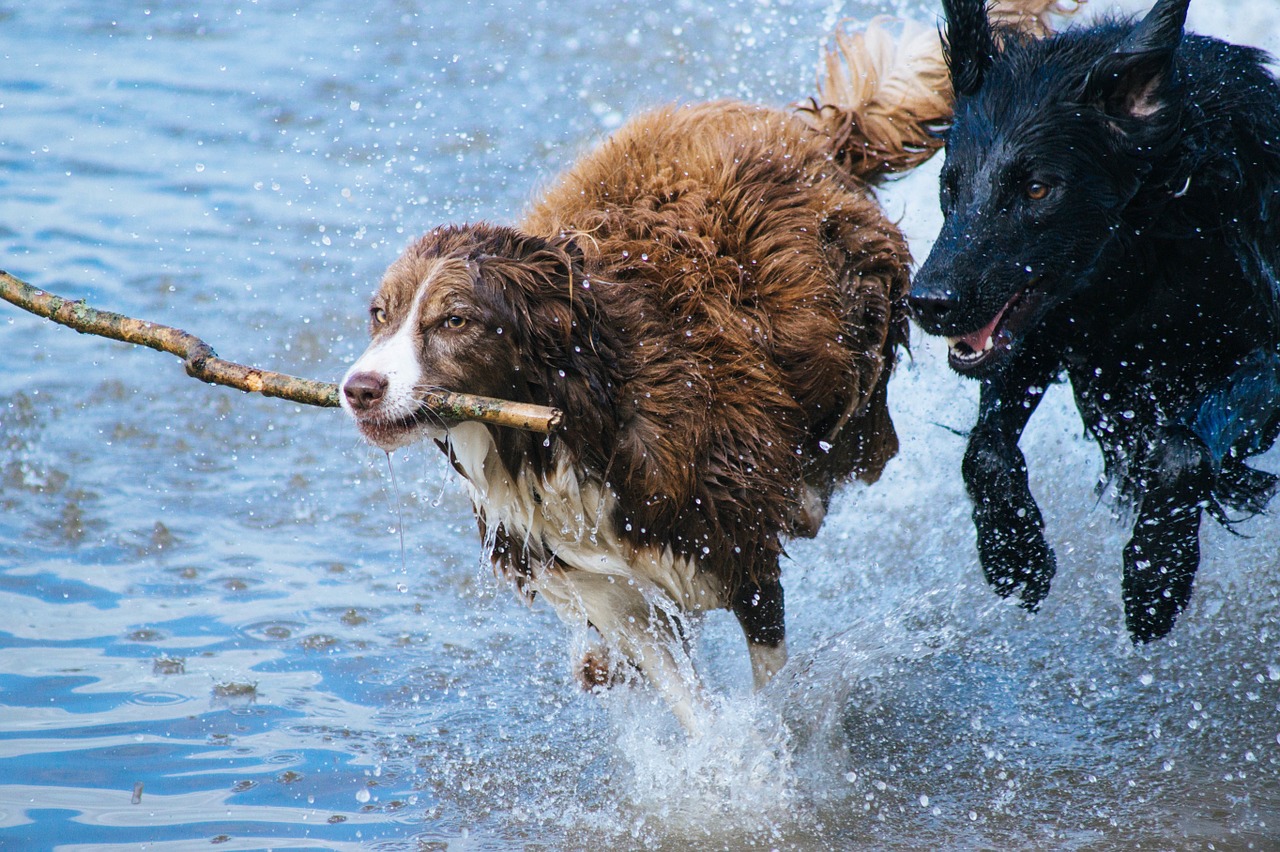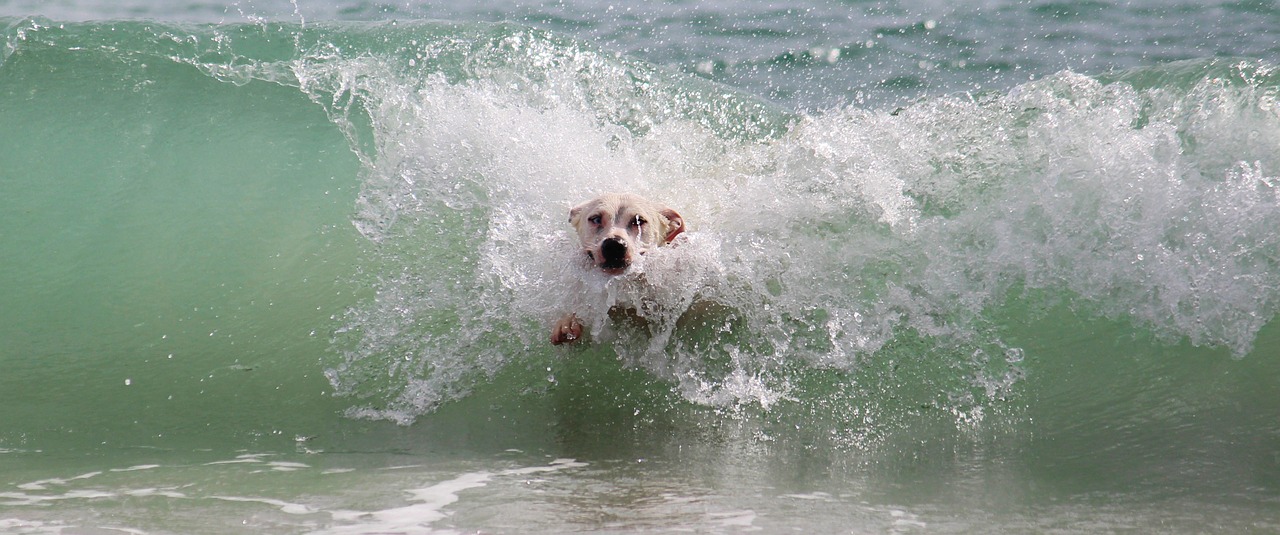Dogs and sunburn. Just like humans, need protection from the harmful effects of the sun. In the bright and beautiful days of summer, it’s common to see dogs frolicking at the beach, riding on boats, and hiking the trails with their sun loving owners, whether at home or travelling. Yet, not all dog owners realise that their pets, just like people, need protection from the ultraviolet rays.
How Do Dogs Sunburn?
Mostly the ears, nose, and belly areas are vulnerable but any area can burn, especially on thin haired dogs or dogs with light coat coloring. Some breeds such as Chihuahuas love to sunbathe and they don’t know when they’ve had enough.
Dogs love to join the family at fairs and festivals or on the beach but exposure to sunlight reflecting off concrete pavement or beach sand can lead to sunburn on the belly area.
Recognizing Sunburn on Dogs
Sunburn produces redness of skin and may be first noticed on the bridge of the nose, tips of the ears, on the abdomen, any place that hair parts, or any area where hair is sparse.
Dogs do not burn as easily as humans do so by the time sunburn is evident, there may be quite a bit of damage.
Complications of Sunburn
Sunburn is not only painful for dogs, but can cause skin sores, with the potential for infection. Just as in humans, too much exposure to ultraviolet radiation can also lead to skin cancer. Repeated sunburn raises the risk of cancer even more.
Preventing Sunburn in Dogs
Very short clips should be avoided as the dog’s coat provides some protection from the sun.
Before and during sun exposure, sunscreen should be applied often to vulnerable areas. Sunscreens made especially for pets are best. Sunscreens for human use may contain ingredients that are toxic to dogs. Veterinarians can provide specific information on these products.
If sunscreen tends to wash off or get licked off, a light colored body suit that covers as much of the dog’s body as possible, with sunscreen applied to exposed areas, may work better.
Dogs and Sunburn Treatment
Since sunburn is usually serious by the time symptoms are apparent, a veterinarian should be consulted. Depending on the severity of the burn. The wound may be treated by shaving and cleaning the area, and applying topical ointment. More serious burns may require hospitalization and intravenous fluids for dehydration. In severe cases, skin grafts may be needed.
Enjoying the rays is part of the wonderful summer season. A certain amount of sunshine is healthy and helps the body produce Vitamin D but too much exposure can be dangerous. Pets as well as humans should be protected from the damaging effects of the sun.


